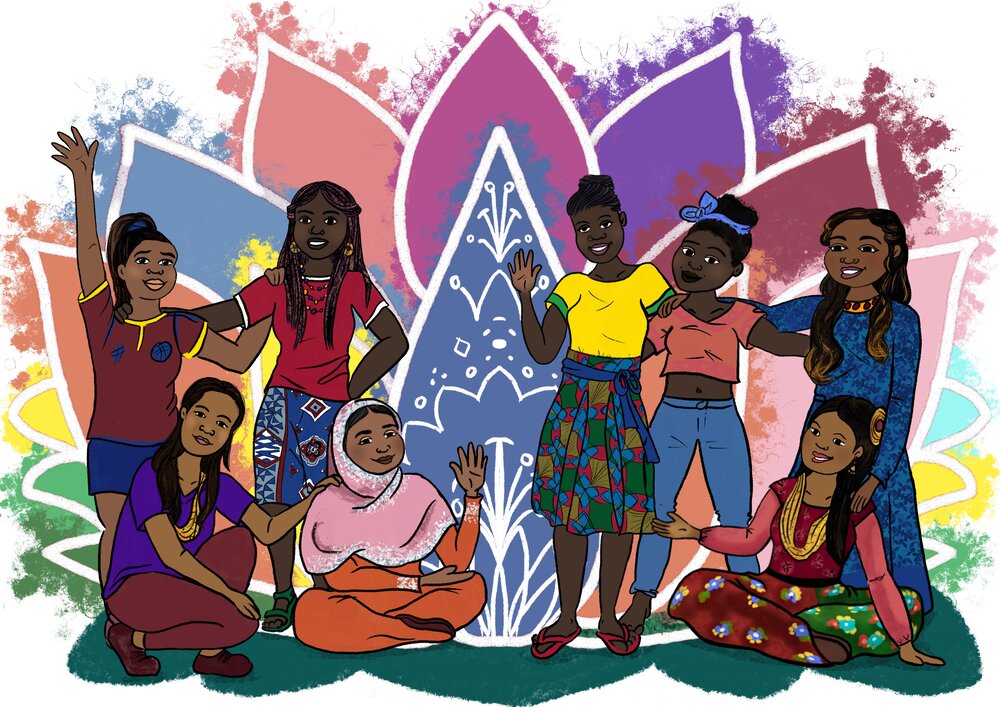From Somaya Faruqi, Rima Sultana to Salsabila Khairunnisa and Ridhima Pandey, many young girls across the world made it to the BBC’s 100 women of 2020 – a huge feat for children below 18 years of age.
Young girls today are leading the way for social change across the world, and inspiring many others like themselves to drive and act foe the much-needed changes. In the field of technology, starting various environmental impact initiatives, raising voice against climatic conditions, taking action against the reckless, fighting for injustice towards children, partnering with field organisations and establishing equality for the girls and women in our society. Their talent, voices and dreams play a pivotal role in building a bigger and better world for all of us.
Here’s a list of these young influential girls and the causes they are working for:
Ridhima Pandey is a 12-year-old climate activist from India, who, at the age of nine, filed a petition against the government of India in response to its inaction to mitigate climate change. In 2019, along with 15 other child petitioners, Ridhima filed a lawsuit against five countries at the UN. Ridhima is currently participating in international conferences and helping to empower other students, at all levels, to fight for their future and for the biodiversity of the world. Ridhima is working to save her future and that of coming generations. “Now is the time for us to be strong and united, and to prove how capable we can be in difficult times. If a woman is determined to achieve something, no-one can stop her.” says Ridhima Pandey.
When Afghanistan’s first case of Covid-19 was reported in her home province of Herat, 18 year old Somaya and her all-female robotics team – the “Afghan Dreamers” – set to work on a low-cost ventilator to treat coronavirus patients. Somaya and her team are planning to show their design to the Ministry of Public Health. If the prototype is approved, it could be used in remote hospitals. Somaya, who was born in 2002, has won several awards, including a silver medal for Courageous Achievement at the FIRST Global Challenge – in recognition of science and technology – in the US; a Benefiting Humanity in AI award at World Summit AI; the Janet Ivey-Duensing’s Permission to Dream Award at the Raw Science Film Festival; and the Entrepreneurship Challenge at Robotex in Estonia, Europe’s biggest robotics festival. “The key to our future is what we are teaching our girls and boys today. We have to make sure every kid has the same access to education, and the tools to make their dream come true.” says Somaya Farugi.
Salsabila is a 17-year-old student from Jakarta, Indonesia. Every Friday she leads a school strike against deforestation in front of the office of the Ministry of Environment and Forestry. At the age of 15, she co-initiated a youth-led movement, Jaga Rimba. As well as forest preservation, the organisation fights for the rights of the indigenous community members who are losing their homes in the Kinipan forest, one of the last surviving rainforests in Kalimantan. “The pandemic has given us a collective consciousness that we are all under the same patriarchal-capitalist system that exists for profit. It is time for us to gather in solidarity, and lead a green and just recovery.” says Salsabila Khairunnisa.
Christina is 15-year-old originally from Ethiopia and was behind the UK petition for free school meals over the summer holidays, which footballer Marcus Rashford supported. As the youth board co-chairwoman of Bite Back 2030, a campaign to fight injustice in the food industry – and having received free school meals herself – Christina wants to make sure no child in the UK goes hungry. “Never compromise on yourself or your beliefs. No woman has ever made a change by blending in with the crowd.” says Christina Adane.
Sapana is an 18-year-old Crematorium Technician from Nepal. After being homeless for three months, Sapana travelled to Kathmandu where she became involved in an organisation that cremates unclaimed bodies. The bodies of those who have died from Covid-19 are strictly managed by the Nepalese army. Sapana’s organisation retrieves the abandoned bodies from the street or mortuaries and arranges for them to be taken to hospital for post-mortem examinations. If the body remains unclaimed for 35 days, the organisation brings it to the crematorium and performs the Dagbatti rituals, which in Hindu culture are usually performed by the son of the deceased. “There are homeless, abandoned people across the world. People who die on the streets deserve proper last rites. I do this job not as a social service but for my own peace of mind.” says Sapana Roka Magar.
Rima Sultana Rimu an 18-year-old peace activist, is a member of Young Women Leaders for Peace in Cox’s Bazar, Bangladesh. This programme, part of the Global Network of Women Peacebuilders, aims to empower young women from conflict-affected countries to be leaders and agents of peace. Rima responded to the Rohingya refugee crisis in her community by advocating for gender-responsive humanitarian action. She organises gender-sensitive, age-appropriate literacy and numeracy classes for Rohingya refugees, and for women and girls in the community who lack access to education. Rima also uses radio broadcasts and theatre performance to raise awareness of UN Security Council resolutions, relating especially to women, peace and security, in her community. “I am determined to bring gender equality to Bangladesh. I believe in the power of women and girls to fight for our rights. We will succeed.” says Rima Sultana.





